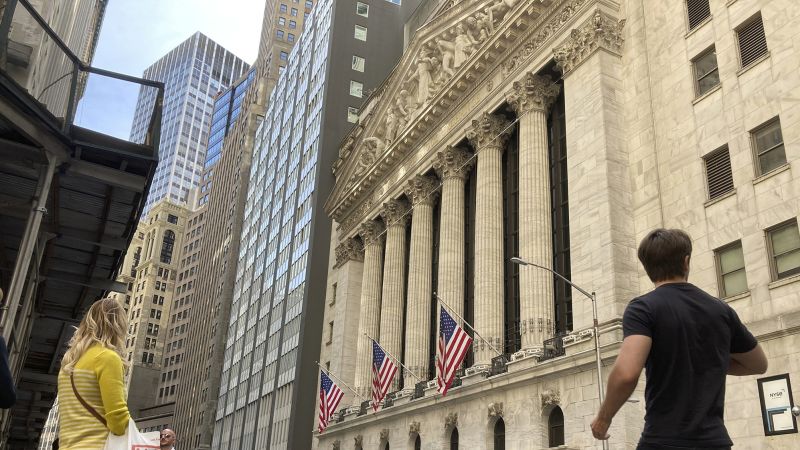
The company that oversees Wall Road has proposed main adjustments to the best way tens of millions of on a regular basis traders purchase and promote shares. That could possibly be unhealthy information for so-called free-trading apps like Robinhood in addition to the lesser identified companies that underpin their enterprise fashions.
Buying and selling could possibly be made fairer for on a regular basis retail traders with some tweaks to the inventory market’s plumbing, Securities and Alternate Fee Chair Gary Gensler stated on the Piper Sandler World Alternate Convention in Washington Wednesday. Gensler requested the SEC to contemplate giving retail merchants entry to among the perks obtainable solely to the most important gamers on Wall Road, together with the power to purchase shares for fractions of a penny, get higher visibility into the market’s mechanics and invite extra patrons and sellers to make sure on a regular basis traders are getting the very best value on a purchase order or sale.
Amongst Gensler’s greatest proposed adjustments is a quirk within the inventory market that was uncovered through the meme inventory mania a yr in the past.
Immediately, once you purchase or promote a inventory on an app, the commerce seems to be instantaneous. However beneath that straightforward purchase/promote motion is a fancy net of Wall Road gamers exploiting tiny variations in value to rake in large quantities of money.
Right here’s the way it works: If you faucet purchase or promote, Robinhood (or your dealer of selection), takes your order to a agency often known as a wholesaler or market maker — the middlemen who’re purported to get you the very best value and who pay the brokers for the privilege of executing the trades. They usually make pennies off every transaction.
That course of is named “fee for order circulate,” and it has come beneath intense scrutiny by regulators following the fallout from the January 2021 run-up in meme shares like GameStop.
The GameStop frenzy “uncovered how rigged the US fairness markets are to counterpoint huge Wall Road companies, excessive frequency buying and selling companies and brokers on the expense of Primary Road retail traders,” Higher Markets CEO Dennis Kelleher wrote at the time.
The Securities and Alternate Fee has been reviewing the system, which accounts for the majority of the brokerages’ revenues. In August final yr, Robinhood’s inventory tumbled after Gensler stated that an outright ban of fee for order circulate was “on the desk.”
Gensler and different critics of the method say the brokers and market makers, similar to Citadel Securities, have a transparent battle of curiosity, and that fee for order circulate screws over on a regular basis traders whereas amassing large wealth for Wall Road companies.
The SEC is contemplating whether or not so as to add extra competitors on the intermediary stage to make sure retail traders are literally getting the very best costs. In that situation, orders could be routed into auctions the place buying and selling companies must compete to execute them.
“It’s not clear, with such market segmentation and focus, and with an uneven enjoying subject, that our present nationwide market system is as truthful and aggressive as attainable for traders,” Gensler stated Wednesday.
For instance, Gensler famous that retail traders purchase shares at penny increments, however wholesalers should purchase shares for increments of fractions of a penny. With excessive quantity, that provides wholesalers a bonus and generates large earnings.
“It raises actual questions on whether or not this construction is truthful and greatest promotes competitors,” Gensler stated. “Why not enable all venues to have an equal alternative to execute at sub-penny increments?”
Gensler additionally proposed giving traders in small numbers of shares related visibility into the markets that huge merchants obtain.
A spokesperson for Robinhood didn’t remark particularly on the potential adjustments however pointed to analysis from MIT that exhibits retail traders saved greater than $17 billion in buying and selling charges due to free-trading apps 2020 and 2021.
In response to Gensler’s feedback, Robinhood defended its enterprise no-fee mannequin, saying it has saved traders billions of {dollars}.
“American retail traders take pleasure in some of the environment friendly, low-cost investing environments in historical past,” stated Dan Gallagher, Robinhood’s chief authorized, compliance and company affairs officer, in a press release. “We sit up for reviewing the Fee’s eventual rule proposal and interesting with the SEC throughout a significant discover and remark rulemaking course of.”
Robinhood shares have been down almost 4% Wednesday afternoon.
— CNN Enterprise’ Matt Egan contributed to this text.
from Wall Street Exchange – My Blog https://ift.tt/AYxBN8U
via IFTTT


No comments:
Post a Comment